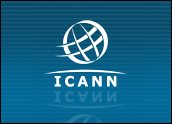
This week, the Internet reached a turning point in its history that presents a wide-ranging set of implications: from future electronic device design to law enforcement tactics — even to online advertising.
Simply put, it has depleted the pool of addresses available under Internet Protocol version 4, or IPv4. The Internet Assigned Numbers Authority, operated by the Internet Corporation for Assigned Names and Numbers (ICANN), doled out the last IPv4 addresses this week to Regional Internet Registries in a public ceremony. The RIRs are expected to distribute the remaining addresses in short order.
Going forward, new addresses will be deployed under the next-generation Internet protocol, IPv6. It makes available a pool of Internet addresses that is a billion-trillion times larger than the total pool of IPv4 addresses, which numbers about 4.3 billion.
The Internet community was hardly caught of guard, as it had been anticipating this development for months, if not years, said Leo Vegoda, a researcher with ICANN. Now, though, ICANN and other organizations that oversee the Internet — the Number Resource Organization, the Internet Architecture Board and the Internet Society — are stepping up their pleas for content producers, device makers and ISPs to hurry their adoption of IPv6.
“It is of paramount importance that this shift moves along as fast as possible,” Vegoda told TechNewsWorld.
A Few Blips
For all the sense of urgency and global coordination, everyday users of the Internet will not notice much difference as the transition proceeds, Vegoda said. “The ISPs will be handling much of this.”
Some technology users, though, may experience some glitches, he added, such as people using VPN software to connect with their offices or users of point-to-point software such as Skype.
Some devices might have difficulty connecting to the Internet as well, warned Richard Jimmerson, CIO at theAmerican Registry for Internet Numbers.
“Other applications that may run into trouble are video streaming, voice streaming, online gaming — applications like that,” he told TechNewsWorld. On the other hand, “simple Web browsing and email are the applications that will be least impacted by this change.”
Network Address Translation
Some glitches are expected, given the nature of the transition, Jimmerson explained.
The technology involved will include additional layers of network address translation until the entire Internet has been shifted to IPv6 — a process that could conceivably take as long as 10 years, he said. This technology will allow a single user to share the same address with a group of other users.
“There will be increased latency times in some cases — more delays on the networks,” said Jimmerson.
The changeover will also throw a wrench in certain industries’ practices of using unique Internet addresses. Law enforcement is one example, Vegoda said. “There are definite security implications with this transition.”
Another industry that will be affected is online advertising, which has turned into a high art the targeting of consumers via their IP addresses.
“A company will not be able to track the habits of one computer any more,” Vegoda said. “It may find itself following the online patterns of an entire neighborhood.”



















































